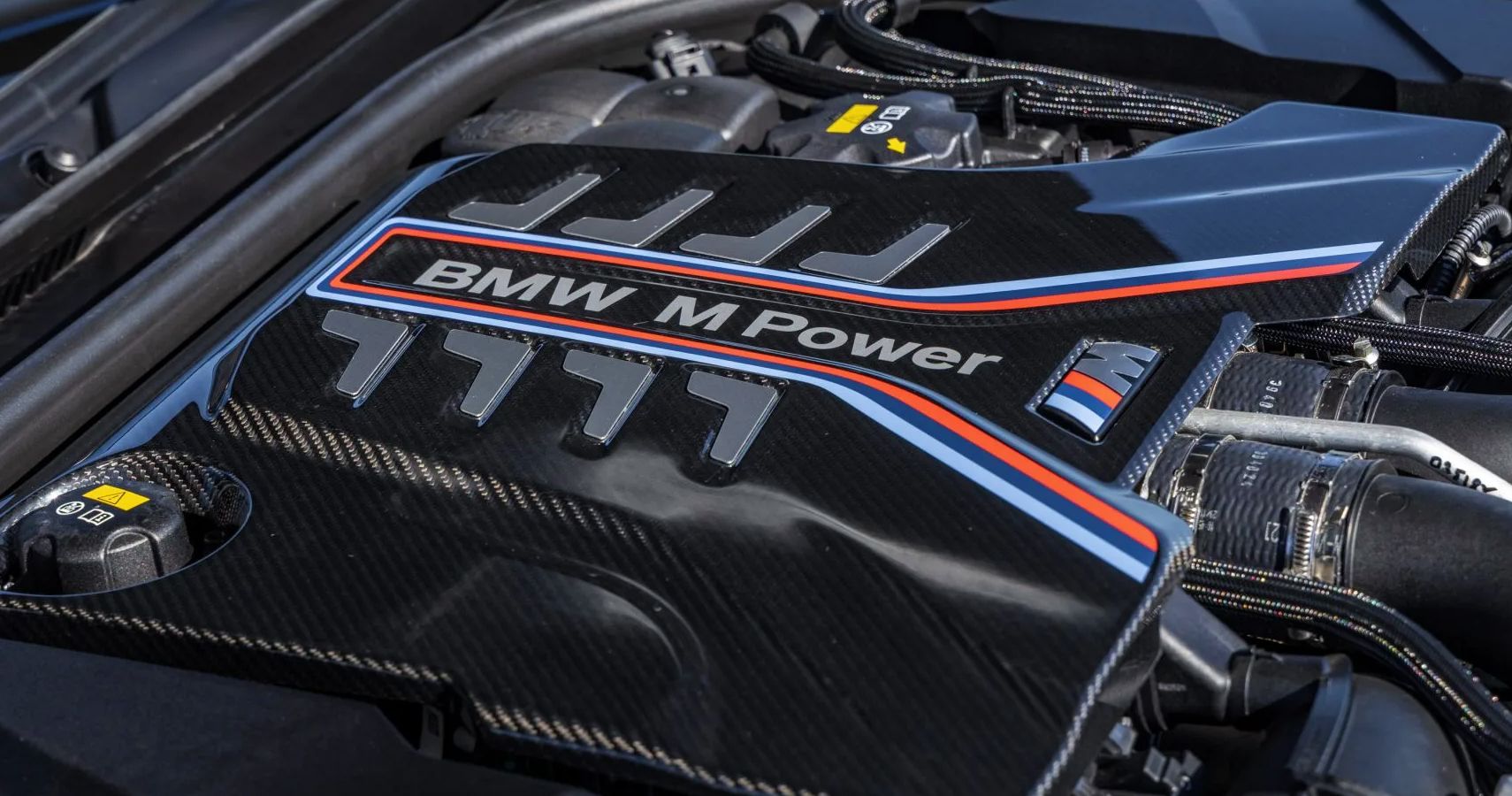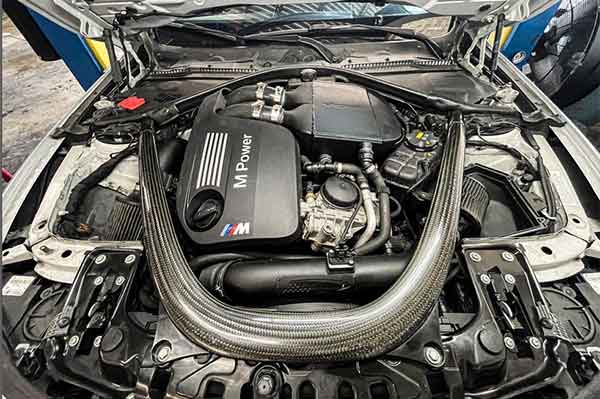The Role of BMW Engine Design in Achieving Exceptional Fuel Efficiency
The Role of BMW Engine Design in Achieving Exceptional Fuel Efficiency
Blog Article
Discovering the Advancement of Combustion Engines in Modern Transport Systems
As we navigate the landscape of contemporary transportation, the evolution of combustion engines stands as a testament to human resourcefulness and design prowess. From their humble beginnings to the innovative giants moving lorries today, combustion engines have gone through an impressive trip of technology and adjustment. Comprehending the intricacies of this advancement not only drops light on the past however additionally leads the way for envisioning what lies ahead in the world of transportation technology. The interplay of history, modern technology, and environmental concerns in shaping the trajectory of burning engines develops a story that is both informative and engaging.
Early Beginnings of Combustion Engines
Exactly how did the concept of burning engines initial emerge in the very early stages of transport development? The roots of burning engines can be traced back to the 17th century when the principles of inner combustion were very first discovered.
The advancement minute came with the invention of the very first effective gasoline-powered engine by Karl Benz in 1885 - bmw engine. This engine led the way for the advancement of the modern-day vehicle, reinventing transport systems worldwide. Subsequent advancements by Nikolaus Otto and Gottlieb Daimler better refined combustion engine innovation, leading to the automation of cars and the quick expansion of the transportation industry
These early combustion engines were characterized by their simplicity and efficiency, laying the foundation for the complex and powerful engines used in modern transportation systems. The evolution of burning engines has actually contributed fit the means we take a trip and move goods, noting a substantial landmark in the background of transportation advancement.
Shift to Internal Burning Modern Technology
The change to interior combustion technology marked a crucial change in the development of transportation systems. This shift started in the late 19th century, with developers like Nikolaus Otto and Gottlieb Daimler establishing the very first successful inner burning engines. These engines reinvented transportation by offering an extra effective and effective alternative to steam engines and electric motors.
One of the vital benefits of interior burning engines was their capability to be scaled down to fit into cars, causing the development of automobiles and motorcycles. This shift from cumbersome, stationary engines to small, mobile ones led the way for the modern transport systems we see today.
The shift to inner combustion technology additionally spurred innovations in fuel modern technology, causing the development of gas and diesel as primary fuel resources for cars. This change not only made transport more obtainable to the masses but likewise laid the foundation for the oil and gas market to come to be essential to international economies.
Effect of Combustion Engines on Transportation
The fostering of burning engines in transportation systems catalyzed an extensive change in the efficiency and rate of international movement. Combustion engines transformed transportation by supplying a reliable and flexible source of power for different lorries, including automobiles, ships, planes, and vehicles. This development substantially boosted the ability for goods and people to conform visit this site long distances in much shorter timespan, bring about raised connection in between areas and countries.
Furthermore, the widespread use of burning engines has actually had a considerable effect on financial growth. The capacity to transport goods efficiently has actually stimulated profession and business, enabling companies to broaden their markets and reach consumers worldwide. This has facilitated financial development and globalization, as items can now be carried quicker and in larger amounts than ever.
Nonetheless, the ecological effect of combustion engines can not be overlooked. The burning of nonrenewable fuel sources has actually resulted in air pollution and greenhouse gas exhausts, adding to climate change and posing wellness threats to populations. bmw engine. Because of this, there is an expanding focus on establishing alternative propulsion modern technologies to minimize these unfavorable effects and develop a much more sustainable future for transport
Advancements in Combustion Engine Design
One remarkable technology is the growth of turbocharged engines, which make use of exhaust gases to drive a generator that presses inbound air, enabling for more fuel to be charred, resulting in enhanced power output without a significant increase in engine size. Variable shutoff timing systems have actually likewise reinvented engine style by enhancing airflow at different engine rates, boosting both power and effectiveness. These developments collectively contribute to the continual renovation of combustion engines in modern transportation systems.
Future Fads in Burning Engine Advancement
With technology advancements driving continual advancement, the future of combustion engine development is positioned to reinvent transportation systems worldwide. One of the vital patterns in combustion engine growth is the push towards better effectiveness and decreased emissions. Suppliers are investing heavily in study and advancement to enhance engine efficiency while satisfying over here strict ecological laws. This includes the assimilation of sophisticated fuel shot systems, enhanced turbocharging methods, and making use of lightweight products to enhance gas usage and reduce carbon exhausts.
Another famous fad is the adoption of hybrid modern technologies in combustion engines. Crossbreed engines incorporate conventional burning technology with electrical power, providing improved gas efficiency and reduced emissions. As the vehicle sector changes towards electrification, hybrid combustion engines are viewed as a transitional option that bridges the space between traditional automobiles and completely electrical ones.
Furthermore, the combination of clever modern technologies, such as expert system and data analytics, is expected to play a considerable duty in the future of burning engine growth. These modern technologies can optimize engine performance in real-time, leading to much more efficient combustion processes and enhanced overall car performance. Embracing these future trends will not only drive innovation in combustion engine development but additionally add to an extra lasting and eco-friendly transportation ecosystem.

Verdict
Finally, the evolution of combustion engines in modern transportation systems has been marked Resources by considerable developments in innovation and style. From the very early beginnings of combustion engines to the shift to interior combustion technology, these engines have had a profound effect on transportation. Innovations in burning engine layout remain to drive progression in this area, with future trends concentrating on additional enhancing effectiveness and decreasing emissions. The future of combustion engines in transport looks encouraging as study and advancement efforts remain to press borders.
The origins of combustion engines can be mapped back to the 17th century when the concepts of internal burning were very first explored. These engines changed transport by providing an extra effective and powerful choice to heavy steam engines and electric motors.

Report this page